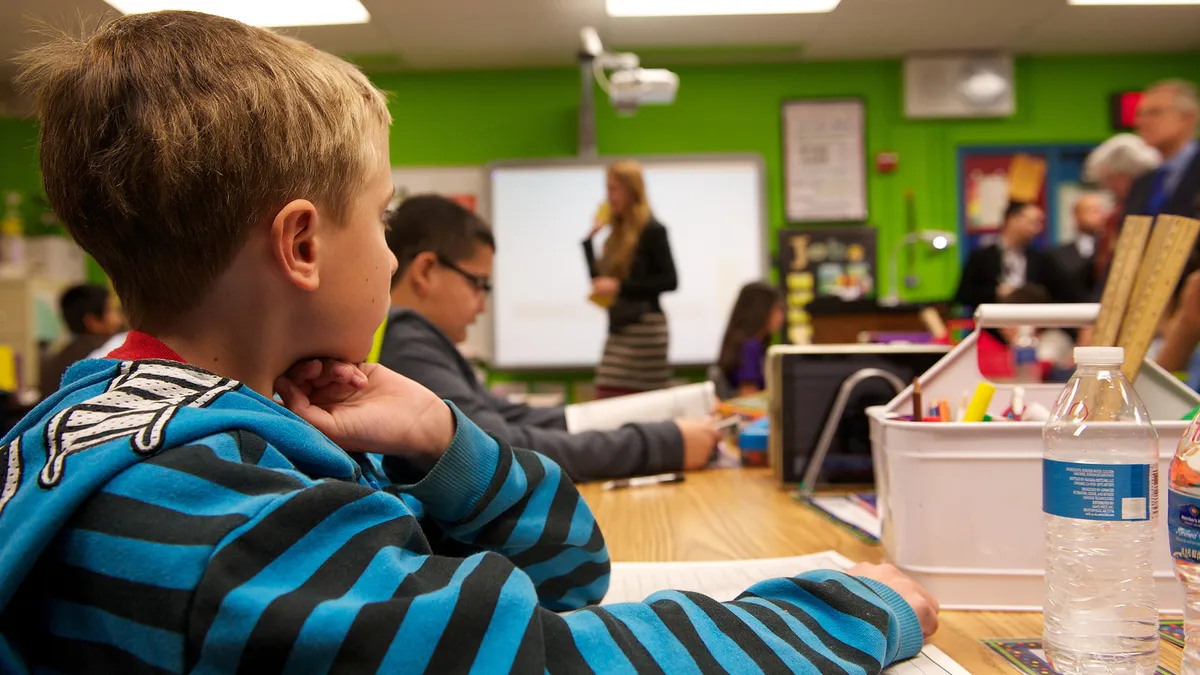Dive Brief:
- Biometric technology that can track students' eye movement and facial expressions via webcams on their devices has been proposed as a means to gather data on how well they're paying attention, according to EdTech: Focus on K-12.
- The technology is already being used in higher ed, with the Paris School of Business' use of Nestor software cited as an example where biometrics analyzes the attention data gathered, alerts students whose interest is waning, and even creates tailor-made quizzes to stimulate their attention spans.
- The use of biometrics, however, is controversial due to privacy and security concerns — as one might expect with software that would gather facial recognition data on students — and EdTech notes that a 2012 Gates Foundation donation to one such platform generated resistance from educators, parents and politicians.
Dive Insight:
With the use of tracking systems in school security fueling ethics debates around privacy and cybersecurity, it's unlikely the use of biometrics will become widespread in K-12 anytime soon. Parents' rights to security camera footage under FERPA are unclear, and the recording of every behavioral violation in databases or on in-class cameras, as well as filtering tools that capture all searches and even any text typed, have already bred plenty of resistance. A tool using fadccial recognition to record what it thinks is inattention is sure to be equally problematic: Not everyone's face expresses such things the same, and what if the tech misreads these facial cues?
Still, this isn't the creepiest tech-related proposal for the classroom in recent years. That arguably goes to BrainCo, a company developing electronic headbands that deliver student EEG brain data to a dashboard for educators. The company stated last year that it aimed to create "the world's largest brainwave database" using the data collected, which would then support the creation of a tool that can translate thoughts to text. Given the pre-existing privacy concerns already mentioned, it'll likely be even longer than biometrics before parents are comfortable with that sort of system.











